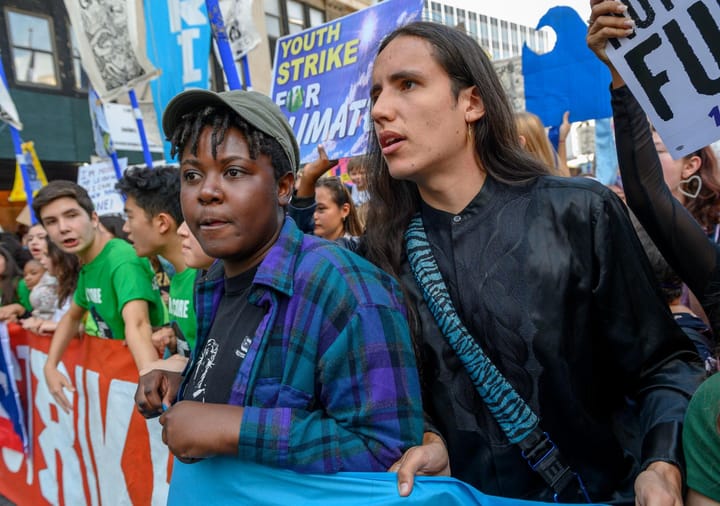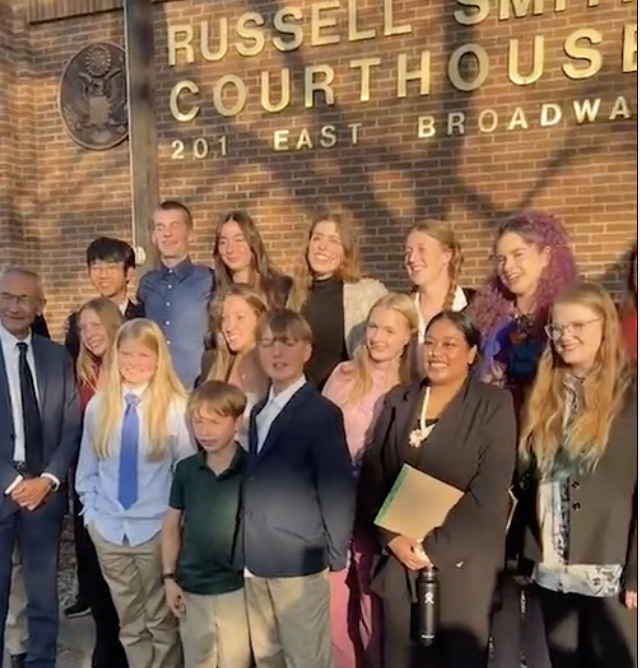Exxon Doubles Its Defense, Urges Mass. State Court To Toss Mass. Attorney General's Climate Fraud Case With Two Motions To Dismiss

ExxonMobil is pushing back, and trying to play the victim card, in response to a climate change accountability lawsuit filed in October 2019 by the Massachusetts attorney general alleging investor and consumer fraud over the oil major’s statements and advertising pertaining to its fossil fuel products and their impacts on the climate system.
Massachusetts Attorney General Maura Healey sued ExxonMobil on October 24, 2019 for allegedly misleading investors and consumers on climate risks of Exxon’s business and products – including systemic risks to the economy – in violation of Massachusetts’ consumer protection statute. The complaint includes allegations of failing to disclose climate-related risks to Exxon’s business to investors, deceptive marketing of certain Exxon products as environmentally friendly to consumers, and ongoing misleading or greenwashed advertising of the company to obscure Exxon’s harmful environmental and climate impact. It is just one of almost two dozen lawsuits targeting Exxon and similar petroleum giants for deceptive behavior on the climate consequences of their products to protect their business interests.
Most of these lawsuits are tied up in jurisdictional battles over whether they belong in state or federal courts. Exxon tried unsuccessfully to boot the Massachusetts lawsuit to federal court, and now it is aiming to get it tossed out of Massachusetts state court.
Last summer the company filed two motions to dismiss AG Healey’s suit in Suffolk County Superior Court. These filings, and the Attorney General’s response, were made public in December 2020. Exxon also filed replies in December supporting its two motions.
The oil major is not only pushing back with a standard motion to dismiss, but is complaining that its protected speech or “petitioning rights” are unlawfully targeted by the lawsuit. In other words, Exxon is playing the victim card and demanding the court dismiss the lawsuit under an anti-SLAPP action. SLAPP refers to “Strategic Litigation Against Public Participation” and anti-SLAPP laws are intended to protect against lawsuits quelling free speech.
Exxon filed a special motion to dismiss under the Massachusetts anti-SLAPP statute on July 30, 2020. In its motion, Exxon argues that the Mass. AG lawsuit amounts to “lawfare,” and is an attempt to squash political opponents who do not share the Commonwealth’s views on climate change.
“Those, like ExxonMobil, who decline to parrot the Attorney General’s call for an immediate transition to renewable energy are not simply diverse viewpoints in a public debate with state, federal, and global policy implications, but targets who must be silenced through ‘lawfare,’” Exxon attorneys write.
Exxon also alleges that the Attorney General “conspired” with private interests like environmental activists and attorneys to bring this litigation, and that the real objective is to impose the AG’s preferred “views” and policies on climate. In essence, Exxon argues that the AG’s allegations concern policy disagreements, not deceptive or fraudulent conduct. According to Exxon, the “Attorney General brought this suit to advance its preferred climate policies by silencing perceived political opponents.”
In its regular motion to dismiss filed on August 5, 2020, Exxon takes a number of shots at the Mass. AG lawsuit, claiming: “The Attorney General seeks headlines, not solutions,” and insisting the “Attorney General may not use a civil lawsuit to make ExxonMobil its political scapegoat.” Exxon also points the finger at Massachusetts for being “as dependent on fossil fuel as ever” while simultaneously defending fossil fuels as a “lawful product that is essential to modern life.” Furthermore, Exxon argues it does not sell gas directly to Massachusetts consumers and that its retail gas stations are “independently owned” and operated through a Brand Fee Agreement.
According to Exxon, the lawsuit must be dismissed due to lack of personal jurisdiction, failure to state a claim, and violations of the Constitution. Exxon says that its allegedly misleading claims did not specifically target Massachusetts, and that its commercial speech is protected under the First Amendment.
Attorney General Healey, however, told the court in filings on Oct. 30, 2020 opposing Exxon’s motions that this is simply not the case. The First Amendment “simply does not protect fraudulent and deceptive speech,” the AG explains.
Massachusetts says that Exxon’s deception and climate denial “continues to this day.”
“But like the tobacco industry before it, ExxonMobil has engaged in a cover-up,” the AG brief explains. The brief recalls many of the allegations asserted in the complaint. The AG also argued that Exxon’s anti-SLAPP action should be dismissed, as allowing it would interfere with traditional state law enforcement authority and because Exxon has not demonstrated that its deceptive conduct constitutes free speech.
Hearings on one or both of Exxon’s motions to dismiss could be scheduled in the coming months.


